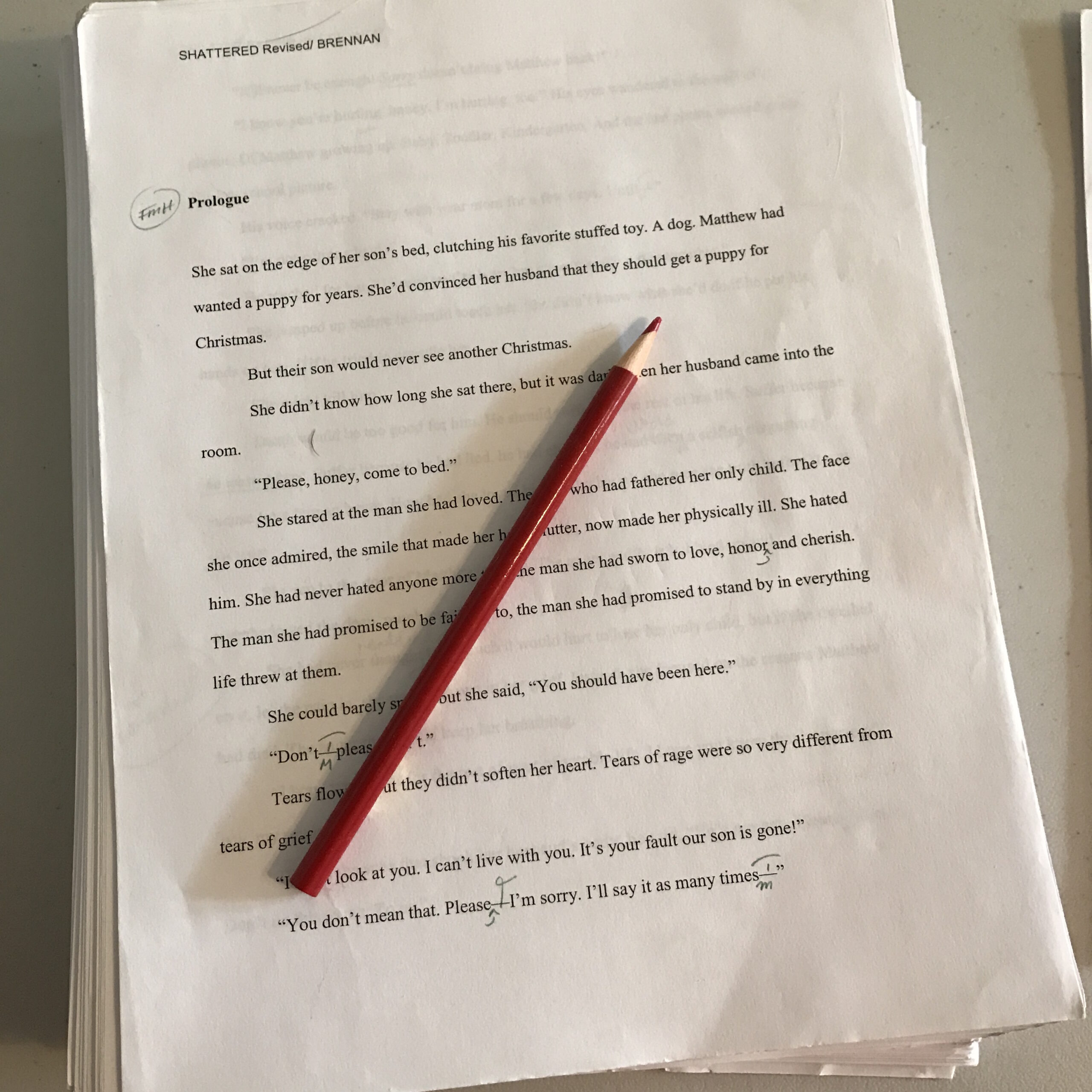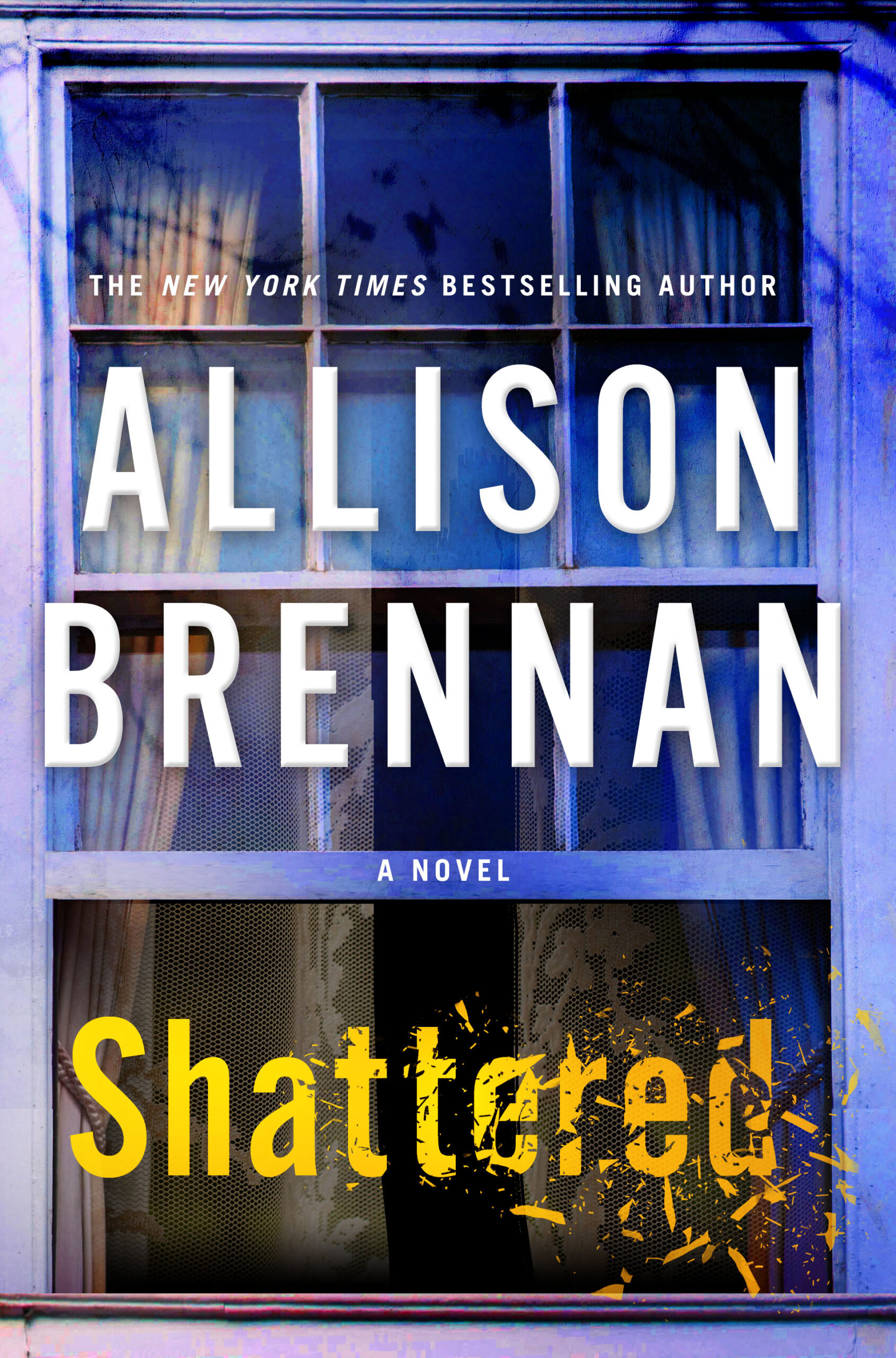This weekend, I finished editing my copy edits for SHATTERED, the 4th Maxine Revere cold case mystery (on sale 8.22.17.) I received them on Monday the 9th, but didn’t sit down to work on them until Thursday … and finished them in three days. Trust me when I say I never get through copy edits so quickly. I was worried, so I spent Sunday and Monday morning going through them a second time because for certain I had missed something. I made a few more tweaks, but in the end, I’m very, very happy with this book and will be sending it back to NYC tomorrow … early. (Well, my editor won’t get them that early because I’m going to send them 2-day rather than overnight and save me about $40!)
 The first thing I thought when I finished reading this book was how much I loved the story … and then I panicked. What if I love it but no one else does? How can I judge my own work? I already have a hard enough time judging my own stories.
The first thing I thought when I finished reading this book was how much I loved the story … and then I panicked. What if I love it but no one else does? How can I judge my own work? I already have a hard enough time judging my own stories.
Case in point: I wrote a book and sent it to my agent. I don’t want to say too much about it yet, but I loved the story and the characters. My agent read it and while he liked it (sort of) there were several problems. One big problem and several little problems. I spent ten weeks on and off working on revisions … and the story is SO much better than the original. I changed one seemingly small plot point, but it had a ripple effect through the story and the ending rocked.
But I thought the original was really good, too — and now I’m biting my fingernails waiting for notes on the revised book.
What if my concept of good and bad is flawed?
So, that’s what I was thinking about when I finished the copy edits for SHATTERED. I love this book … but what if it’s not as good as I think?
And thus is the life of a writer.
I love writing, and I don’t think my books suck. They might not be for everyone, but they’re good stories and I’ve been blessed with great editors who’ve really helped me become a stronger writer. I’d like to think that after more than 30 books, I know what I’m doing … but every book I write I still have doubts. Is it good? Is it really good? Is it well-written? Will my readers like it? Will I find new readers?
SHATTERED is the 4th Maxine Revere book … but it’s also (sort of) the 13th Lucy Kincaid book. While it’s a Max story (cold case mystery), she’s solving the nearly 20-year-old murder of Justin Stanton, Lucy Kincaid’s nephew. The book starts and ends with Max, but everything in the middle Max and Lucy have equal time. In fact, there are only 4 POVs in the entire book (I’ve never written a full-length book with so few points-of-view): Max, Lucy, David Kane (Max’s assistant), and Danielle Sharpe, a legal secretary. Sean’s in the book briefly, and most of the Kincaids come in at some point, but 90% of the story is Max and Lucy.
It was SO much fun to write. When I came up with the idea, I didn’t know how it would work. Max and Lucy are very different people. They look at the world in a slightly different way. And when Max is forced to work with Lucy, she nearly has a fit–she doesn’t partner with cops. It never ends well. But Max needs Lucy because Lucy has access–and Lucy needs Max because she’s working the investigation off-book. Putting them together was a total blast, and I really hope my long-time readers like it.
 I don’t think I’ve met a writer who hasn’t had doubts about their writing … even when they think something is good. In fact, thinking a story is good is a sure-fire way to bring on a bigger panic attack that the story really sucks but the writer is too dumb to see it. Yep, look it up in the dictionary: one of the adjectives defining WRITER is “neurotic.”
I don’t think I’ve met a writer who hasn’t had doubts about their writing … even when they think something is good. In fact, thinking a story is good is a sure-fire way to bring on a bigger panic attack that the story really sucks but the writer is too dumb to see it. Yep, look it up in the dictionary: one of the adjectives defining WRITER is “neurotic.”
Doubts are the name of the game in this business. And while the doubt demons are stressful and create huge problems for most writers, including yours truly, the doubt demons also keep writers focused on the end result. Which is what?
Writing a better book than the last.
I’ve often talked about the advice Mariah Stewart gave me when I was struggling with my 7th book. She’d just published her 20th book and I lamented to her via email that I couldn’t wait until I was in her place where it was “so much easier.” Because obviously, I was thinking, 20 books she must totally know what she’s doing!
Marti called me and said, “Honey, it never gets any easier.” She went on to say that some books might be easier than others, but the 21st book could be a harder book to write than #6. Why? “Because you will always be trying to writing a better book than the last.”
This is why when I’m asked, “What advice to you have for aspiring writers?” or “What do you wish you’d have known before you published?” I quote Marti: “It doesn’t get any easier.”
The difference between a professional writer and a novice is that professional writers KNOW this, they KNOW that writing is work, and even when a book might come easier once in a while, they never take that “easy” book for granted. Because the next one may be the most difficult story they’ve ever penned.
In the end, however, writers write for first themselves, and then their readers. If I don’t like it, I know my readers won’t. And if I do? Well, I’m crossing fingers.
The cover for SHATTERED has been on my web page for awhile, I haven’t “officially” announced it … I had a Lucy book out in November and the next Lucy book comes out in March. But I thought now would be a good time to share it if you haven ‘t seen it. The hardcover is available for pre-order and the ebook should be available for pre-order within the next couple of weeks. I really love this cover.
Oh … and something fun. There’s a special excerpt for SHATTERED at the end of MAKE THEM PAY. Generally, the publisher puts in the first chapter of the upcoming book, but this time, we picked the chapter six, when Lucy first comes on page and hears about Maxine Revere’s investigation into the murder of her nephew. My editor and I talked about it a lot and thought that Lucy Kincaid fans would really like to see how she joins the investigation, and it reads smooth enough so readers shouldn’t be too lost.
For links visit my web page … below is the “official” cover copy for SHATTERED. Enjoy!
Investigative reporter Maxine Revere and rookie FBI Agent Lucy Kincaid come together in an explosive story about love, murder, betrayal, and family ties …
Over a span of twenty years, four boys have been kidnapped from their bedrooms, suffocated, and buried nearby in a shallow grave. Serial killer or coincidence?
That’s the question investigative reporter Maxine Revere sets out to answer when an old friend begs her to help exonerate his wife, who has been charged with their son’s recent murder. But Max can do little to help because the police and D.A. won’t talk to her―they think they have the right woman. Instead, Max turns her attention to three similar cold cases. If she can solve them, she might be able to help her friend.
Justin Stanton was killed twenty years ago, and his father wants closure―so he is willing to help Max with her investigation on one condition: that she work with his former sister-in-law― Justin’s aunt, FBI Agent Lucy Kincaid. Trouble is, Max works alone, and she’s livid that her only access to the case files, lead detective and witnesses depends on her partnering with a federal agent on vacation. She wants the career-making story almost as much as the truth―but if she gets this wrong, she could lose everything.
Haunted by Justin’s death for years, Lucy yearns to give her family―and herself―the closure they need. More important, she wants to catch a killer. Lucy finds Max’s theory on all three cases compelling―with Max’s research added to Lucy’s training and experience, Lucy believes they can find the killer so justice can finally be served. But the very private Lucy doesn’t trust the reporter any more than Max trusts her.
Max and Lucy must find a way to work together to untangle lies, misinformation, and evidence to develop a profile of the killer. But the biggest question is: why were these boys targeted? As they team up to find out what really happened the night Justin was killed, they make a shocking discovery: Justin’s killer is still out there … stalking another victim … and they already may be too late.
